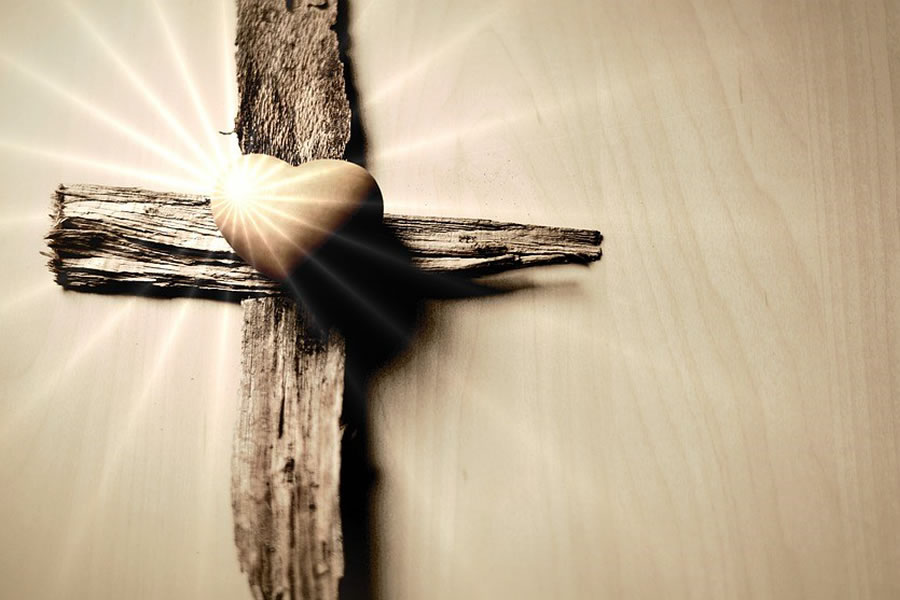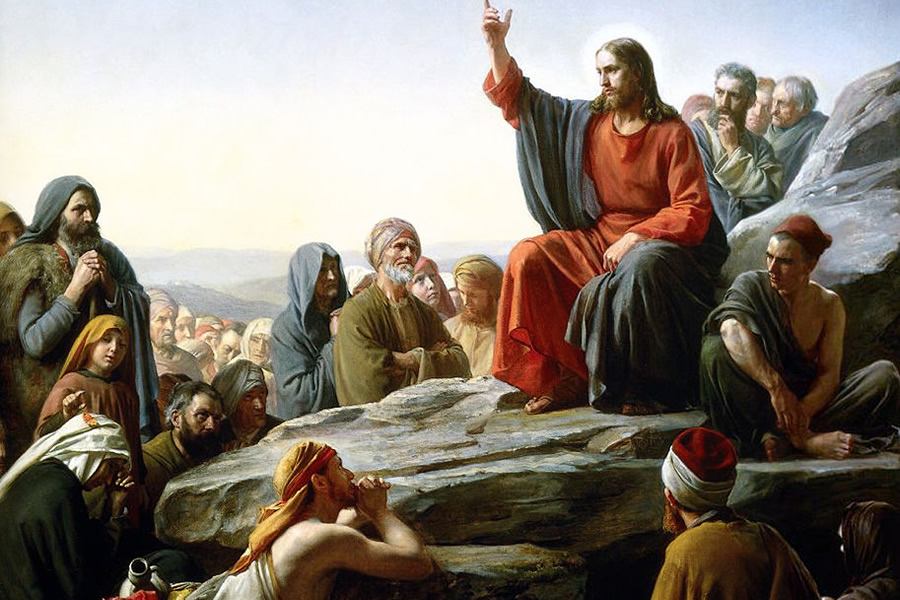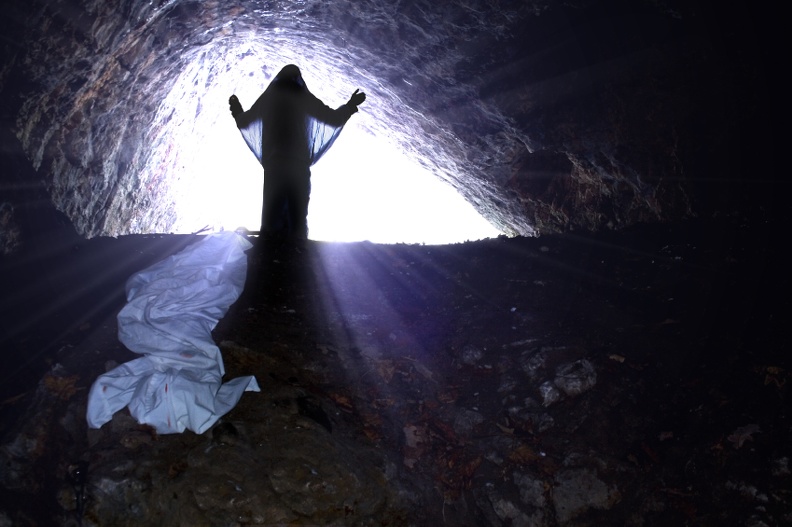St. Francis of Assisi Weekly Reflections

How are you bringing Peace to your world?
11-27-2022Weekly ReflectionWe Celebrate Worship Resource, Vol. 47, No. 3Advent is not only a season to prepare for Jesus’ coming as a tiny baby at Christmas. Today’s Gospel reminds us that Jesus will come again at the end of time, like a thief in the night, when those who are unprepared will be swept away like victims of the Great Flood. How can we prepare? Isaiah’s counsel can help. Isaiah Prophesied that those walking in the Lord’s paths will take their swords and spears and turn them into blades for their plows and pruners. Swords and spears are weapons, used against a foe in battle. Plows and pruners are used for preparing fields and trees to grow food. In Isaiah's vision, tools of war become tools of life. Instead of being used to fight, they are used to nourish. Turning confrontation into cooperation, as in Isaiah’s prophecy, is how we can prepare ourselves for the arrival of the Prince of Peace, no matter when he comes. May Jesus Christ, that thief in the night, break into our hearts this Advent and guide us to making peace in our families, in our communities, and in the world. With whom can you reconcile and cooperate during the next four weeks?
¿Como estas trayendo Paz a tu mundo?
El Adviento no es solo una temporada para prepararse para la venida de Jesús como un pequeño bebé en la Navidad. El Evangelio de hoy nos recuerda que Jesús volverá al final de los tiempos, como un ladrón en la noche, cuando los que no estén preparados serán barridos como víctimas del Gran Diluvio. ¿Cómo podemos prepararnos? El consejo de Isaías puede ayudar. Isaías profetizó que los que caminan en los caminos del Señor tomarán sus espadas y lanzas y las convertirán en hojas para sus arados y podaderas. Las espadas y las lanzas son armas que se usan contra un enemigo en la batalla. Los arados y las podadoras se utilizan para preparar campos y árboles para cultivar alimentos. En la visión de Isaías, las herramientas de guerra se convierten en herramientas de vida. En lugar de usarse para pelear, se usan para nutrir. Convirtiendo la confrontación en cooperación, como en la profecía de Isaías, es cómo podemos prepararnos para la llegada del Príncipe de la Paz, venga cuando venga. Que Jesucristo, ese ladrón de la noche, irrumpa en nuestros corazones este Adviento y nos guíe a hacer la paz en nuestras familias, en nuestras comunidades y en el mundo. ¿Con quién puedes reconciliarte y cooperar durante las próximas cuatro semanas?
Putting on the Light of Christ
11-27-2022Question of the WeekReading I: Isaiah 2:1–5 Zion, the messianic capital
Reading II: Romans 13:11–14 Christian use of time
Gospel: Matthew 24:37–44 The need for watchfulness
Key Passage: Let us then lay aside the works of darkness and put on the armor of light. (Romans 13:12b)
Adults: What will you do during Advent so that others can see that you have put on the light of Jesus Christ?
Kids: What will you do during Advent so that others can see the light of Jesus in you?
Ponerse En La Luz De Cristo
Lectura I: Isaías 2:1–5 Sion, la capital mesiánica
Lectura II: Romanos 13:11–14 Uso cristiano del tiempo
Evangelio: Mateo 24:37–44 La necesidad de vigilancia
Pasaje Clave: Dejemos a un lado las obras de la oscuridad y pongámonos la armadura de la luz. (Romanos 13:12b)
Adultos: ¿Qué harás durante el Adviento para que los demás vean que te has puesto la luz de Jesucristo?
Niños: ¿Qué harás durante el Adviento para que otros puedan ver la luz de Jesús en ti?

Hi Faith is Now Our Faith
11-20-2022Weekly ReflectionWe Celebrate Worship Resource, Vol. 47, No. 3After Jesus was baptized, the Holy Spirit led him into the desert for forty days, where he was tempted by the devil. Three times he was given the opportunity, in essence, to save himself from the cross that he would bear. Today we hear Jesus tempted three final times on the cross. The rulers, the soldiers, and one of the criminals collectively take the role of the devil, each calling on him to save himself. None of them can conceive of a king who rules by sacrificing his life, who saves others and not himself, who open his kingdom by dying on the cross. The penitent criminal, however, understands. Not only does he believe that Jesus is innocent, he believes that Jesus is in fact a king, a king with the power to admit even a sinner like him into his kingdom. His faith is now our faith. As we hear in the hymn in the second reading and as we say when we celebrate Mass, we believe that through him all things—including us—were created, that through the blood of the cross he has brought peace and redemption, and that we as well “look forward to the resurrection of the dead and the life of the world to come.”
How are you tempted to “save yourself”? How do you resist?
Su Fe Es Ahora Nuestra Fe
Después de que Jesús fue bautizado, el Espíritu Santo lo llevó al desierto durante cuarenta días, donde fue tentado por el diablo. Tres veces se le dio la oportunidad, en esencia, de salvarse a sí mismo de la cruz que llevaría. Hoy escuchamos a Jesús tentado tres veces finales en la cruz. Los gobernantes, los soldados y uno de los criminales asumen colectivamente el papel del diablo, y cada uno le pide que se salve. Ninguno de ellos puede concebir un rey que gobierne sacrificando su vida, que salve a otros y no a sí mismo, que abra su reino muriendo en la cruz. El criminal penitente, sin embargo, entiende. No solo cree que Jesús es inocente, cree que Jesús es de hecho un rey, un rey con el poder de admitir incluso a un pecador como él en su reino. Su fe es ahora nuestra fe. Como escuchamos en el himno de la segunda lectura y como decimos cuando celebramos la Misa, creemos que por medio de él fueron creadas todas las cosas —incluidos nosotros—, que por medio de la sangre de la cruz ha traído la paz y la redención, y que nosotros también “esperar la resurrección de los muertos y la vida del mundo venidero”.
¿Cómo estás tentado a “salvarte a ti mismo”? ¿Cómo te resistes?
A King Above All
11-20-2022Question of the WeekReading I: 2 Samuel 5:1-3 - David anointed king
Reading II: Colossians 1:12-20 - Christ is before and above all things
Gospel: Luke 23:35-43 - The crucified king
Key Passage: Then he said, “Jesus, remember me when you come into your kingdom.” He replied to him, “Amen, I say to you, today you will be with in Paradise.” (Luke 23:42–43)
Adults: In what ways is Jesus the ruler of your life?
Kids: How can you show that you honor Jesus as the king of your life?
Un Rey Sobre Todo
Lectura I: 2 Samuel 5:1-3 - David ungido rey
Lectura II: Colosenses 1:12-20 - Cristo está antes y por encima de todas las cosas
Evangelio: Lucas 23,35-43 - El rey crucificado
Pasaje Clave: Y le decía a Jesús: “Señor, cuando llegues a tu Reino, acuérdate de mí.” Jesús le respondió: “Yo te aseguro que hoy estarás conmigo en el paraíso.” (Lucas 23:42–43)
Adultos: ¿De qué manera es Jesús el gobernante de tu vida?
Niños: ¿Cómo puedes demostrar que honras a Jesús como el rey de tu vida?

There Shall Not Be Left One Stone Upon Another
11-13-2022Weekly ReflectionWe Celebrate Worship Resource, Vol. 47, No. 3There Shall Not Be Left One Stone Upon Another
We heard the Beatitudes two weeks ago on the solemnity of All Saints, Jesus’ special way of saying that those who suffer are blessed with God’s favor. The final line of today’s Gospel could be transformed into a beatitude: Blessed are those who persevere under duress, for they will secure their lives in the kingdom of heaven. There will come a time when massive destruction will engulf the whole world, but things in this world are destroyed all the time. The temple Jesus spoke of was destroyed around the time Luke wrote his Gospel. Wars, insurrections, and plagues are frightfully resonant in our age. But cities and buildings, even governments and social order, are the work of humans, ultimately subject to ruin. Throughout such distress, we are evildoers, like those burned to stubble in the reading from Malachi, or lazy busybodies, like the people Paul addresses in his letter? Or do we persevere in showing mercy, making peace, and hungering and thirsting for righteousness, witnessing to the gospel by our lives? These actions produce what will truly last: more and more lives welcomed into the kingdom of God.
How do you persevere in time of trial, when things seem hopeless?
No Quedará Piedra Sobre Piedra
Hace dos semanas escuchamos las Bienaventuranzas sobre la solemnidad de Todos los Santos, la manera especial de Jesús de decir que los que sufren son bendecidos con el favor de Dios. La línea final del Evangelio de hoy podría transformarse en una bienaventuranza: Bienaventurados los que perseveran bajo la presión, porque asegurarán su vida en el reino de los cielos. Llegará un momento en que la destrucción masiva engullirá al mundo entero, pero las cosas en este mundo se destruyen todo el tiempo. El templo del que Jesús habló fue destruido en la época en que Lucas escribió su Evangelio. Guerras, insurrecciones y plagas resuenan espantosamente en nuestra era. Pero las ciudades y los edificios, incluso los gobiernos y el orden social, son obra de los humanos y, en última instancia, están sujetos a la ruina. En medio de tanta angustia, ¿somos malhechores, como los quemados hasta convertirse en hojarasca en la lectura de Malaquías, o entrometidos perezosos, como las personas a las que Pablo se dirige en su carta? ¿O perseveramos en mostrar misericordia, hacer la paz, y tener hambre y sed de justicia, dando testimonio del evangelio con nuestra vida? Estas acciones producen lo que verdaderamente perdurará: más y más vidas acogidas en el reino de Dios.
¿Cómo perseveras en tiempos de prueba, cuando las cosas parecen desesperadas?
Overcoming Difficulties
11-13-2022Question of the WeekReading I: Malachi 3:19-20a - Messenger of the covenant
Reading II: 2 Thessalonians 3:7-12 - Qualifications of various ministers
Gospel: Luke 21:5-19 - The cataclysm to come
Key Passage Jesus said, “You will be hated by all because of my name. But not a hair of your head will perish.
By your endurance you will gain your souls.”
(Luke 21:17–19)
Adults: When bad things happen, how do you deal with them?
Kids: Have you ever worried about something that might happen? What can help you worry less?
Superando Dificultades
Lectura I: Malaquías 3:19-20a -Mensajero del pacto
Lectura II: Tesalonicenses 3:7-12 - Calificaciones de varios ministros
Evangelio: Lucas 21:5-19 - El cataclismo por venir
Pasaje Clave: Jesús dijo “Todos los odiaran por causa mía. Sin embargo, no caerá ningún cabello de la cabeza de ustedes. Si se mantienen firmes, conseguirán la vida.” (Lucas 21:17–19)
Adultos: ¿Cuando suceden cosas malas, ¿cómo las afrontas?
Niños: ¿Alguna vez te has preocupado por algo que pueda pasar? ¿Qué puede ayudarte a preocuparte menos?

Live with Faith
11-06-2022Weekly ReflectionWe Celebrate Worship Resource, Vol. 47, No. 3Faith allows us to accept what the human mind cannot even imagine. Witness the faith of the seven brothers in today’s first reading. Each is willing to die at the hands of the cruel king rather than renounce his faith. The king, in a position to enjoy the finer things in life, could not imagine that anyone would willingly give up their life. But the brothers firmly believed that God would raise them up to live again and live forever. In the Gospel, the Sadducees suffered from the same lack of imagination, arguing logically that a belief in resurrection led to absurd consequences. Jesus explains that the customs of this life cannot be applied to the resurrected life. God is a God of the living, and so all who preceded us in faith are yet alive. To accept this takes faith. But we put faith in what we cannot truly understand all the time. Few among us understand all the science behind the medicine we take or the technology we use or the planet we live on, but we place our faith in those who have made the sturdy of these things their life’s work. Jesus’ life’s work, redeeming us by his death, enables us to live with the faith in a life greater than this world, a life beyond our imagination.
How does your faith give you confidence in something greater?
Vive con Fe
La fe nos permite aceptar lo que la mente humana ni siquiera puede imaginar. Sea testigo de la fe de los siete hermanos en la primera lectura de hoy. Cada uno está dispuesto a morir a manos del cruel rey en lugar de renunciar a su fe. El rey, en una posición para disfrutar de las cosas más finas de la vida, no podía imaginar que alguien renunciara voluntariamente a su vida. Pero los hermanos creían firmemente que Dios los levantaría para vivir de nuevo y vivir para siempre. En el evangelio, los saduceos sufrieron la misma falta de imaginación, argumentando lógicamente que una creencia en la resurrección condujo a consecuencias absurdas. Jesús explica que las costumbres de esta vida no pueden aplicarse a la vida resucitada. Dios es Dios de los vivos, y todos los que nos precedieron en la fe aún están vivos. Aceptar esto requiere fe. Pero ponemos fe en lo que realmente no podemos entender todo el tiempo. Pocos entre nosotros entienden toda la ciencia detrás de la medicina que tomamos o la tecnología que usamos o el planeta en el que vivimos, pero ponemos nuestra fe en aquellos que han hecho la resistencia de ti las cosas de su vida. El trabajo de la vida de Jesús, redimiéndonos por su muerte, nos permite vivir con la fe en una vida mayor que este mundo, una vida más allá de nuestra imaginación.
¿Cómo te da tu fe confianza en algo mayor?
The Dead will Rise
11-06-2022Question of the WeekReading I: 2 Maccabees 7:1-2, 9-14 - Martyrdom of a mother and her sons
Reading II: 2 Thessalonians 2:16—3:5 - The gospel versus empty fables
Gospel: Luke 20:27-38 or 20:27, 34-38 - The resurrection of the dead
Key Passage: “Now he is God not of the dead, but of the living; for to him all of them are alive.” (Luke 20:37–38)
Adults: How does your belief in the resurrection of the dead affect the way you live?
Kids: Has someone in your family or among your friends died? Do you think about that person in heaven? What do you hope to talk about with this person?
Los Muertos se Levantaran
Lectura I 2 Macabeos 7: 1-2, 9-14 - Martirio de una madre y sus hijos
Lectura II 2 Tesalonicenses 2:16–3:5 - El evangelio versus las fábulas vacías
Evangelio Lucas 20: 27-38 o 20:27, 34-38 - La resurrección de los muertos
Pasaje Clave “Ahora él es Dios no de los muertos, sino de los vivos; porque para él todos están vivos.” (Lucas 20:37-38)
Adultos: ¿Cómo afecta su creencia en la resurrección de los muertos la forma en que vive?
Niños: ¿Alguien de su familia o entre sus amigos ha muerto? ¿Piensas en esa persona en el cielo? ¿De qué esperas hablar con esta persona?